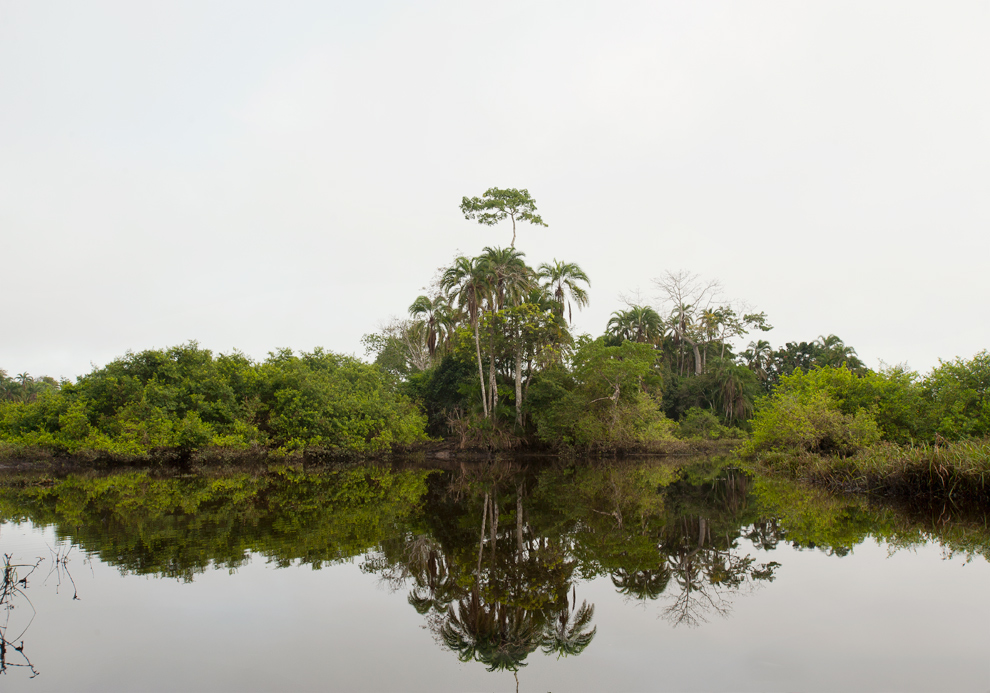My shoes saw more action in the seven days in the Congo than the previous five years combined. They held up and held on admirably, never once giving in to the powerful suctioning force of the soft, squishy ankle-deep muck that seemed determined to send me back to camp barefoot; or so much as let a single lace loosen when they were conspicuously – and admittedly clumsily – splashing along a winding, seemingly endless stream (though their awkwardness at river treading should most likely be attributed more to user error than anything else). From the dry dust of the savannah to the persistent, humid darkness of the rain forest, my beat-up trainers soldiered on, and – aside from an unfortunate and uncleanable encounter with elephant dung – remained unchanged. Perhaps that’s why I didn’t trust them.
Paraphrasing Congo enthusiast and noted biologist/cryptozoologist Roy Mackal, the Congo Basin is an evolutionary oddity in that at least since the close of the cretaceous period it has remained static, the area has ceased to undergo further climatic and geophysical changes. Animals evolve and survive in response to changes in their external environment, while conversely, in the absence of external drivers, when conditions are stable, ancient creatures can thrive and survive unchanged, see: crocodiles.
Entering the jungle can seem like an escape, where you can quickly find yourself in a mesozoic state of mind, confronted with the terrifying – over 2000 strains of skin diseases, to the sublime – gorillas! A place where our evolutionary cousins can be found with relative ease, 400lb primates gently lazing in the trees around us, smiling, sunning themselves, and generally behaving in a relaxed manner that quickly evolves from frighteningly exotic to frighteningly familiar before giving way to pure joy. There’s a sense that anything is possible, running the gamut from the merely curious to the genuinely horrible, the giant Gambian rat that prefers to defecate upside down, to a virus that liquefies your internal organs. Anything could be just around the corner. So it’s easy to sympathize with the original early 20th century English colonial officers, their imaginations astir, seduced by crude Pygmy drawings scribbled in the forest floor of a four legged sauropod, and later taken up by Mackal and various other cryptozoologist expeditions, searching in vain for Mokele-mbembe, that last, illusory dinosaur, an evolutionary dead-end, too isolated to realize he was extinct. But the actuality was enough for us, a Congo so full of life and wonder where the overwhelming reality was all the phenomenon that could be endured.























